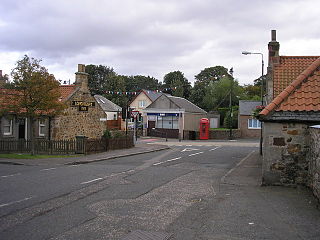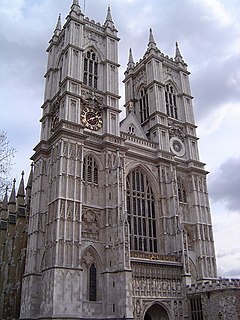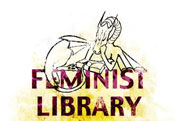Related Research Articles

Prohibition is the act or practice of forbidding something by law; more particularly the term refers to the banning of the manufacture, storage, transportation, sale, possession, and consumption of alcoholic beverages. The word is also used to refer to a period of time during which such bans are enforced.

The United Kingdom of Great Britain and Northern Ireland, commonly known as the United Kingdom (UK) or Britain, is a sovereign country in north-western Europe, off the north-western coast of the European mainland. The United Kingdom includes the island of Great Britain, the north-eastern part of the island of Ireland, and many smaller islands within the British Isles. Northern Ireland shares a land border with the Republic of Ireland. Otherwise, the United Kingdom is surrounded by the Atlantic Ocean, with the North Sea to the east, the English Channel to the south and the Celtic Sea to the south-west, giving it the 12th-longest coastline in the world. The Irish Sea separates Great Britain and Ireland. The total area of the United Kingdom is 242,500 square kilometres (93,628 sq mi), with an estimated population in 2020 of 68 million.

A cooperative is "an autonomous association of persons united voluntarily to meet their common economic, social, and cultural needs and aspirations through a jointly-owned enterprise". Cooperatives are democratically owned by their members, with each member having one vote in electing the board of directors. Cooperatives may include:
The Women's Institute (WI) is a community-based organisation for women in the United Kingdom, Canada, South Africa and New Zealand. The movement was founded in Stoney Creek, Ontario, Canada, by Erland and Janet Lee with Adelaide Hoodless being the first speaker in 1897. It was based on the British concept of Women's Guilds, created by Rev Archibald Charteris in 1887 and originally confined to the Church of Scotland. From Canada the organisation spread back to the motherland, throughout the British Empire and Commonwealth, and thence to other countries. Many WIs belong to the Associated Country Women of the World organization.

Longniddry is a coastal village in East Lothian, Scotland, with an estimated population of 2,420 in 2016. The Scottish Women's Rural Institute was founded here in 1917.

Elsie Maud Inglis was a Scottish doctor, surgeon, teacher, suffragist, and founder of the Scottish Women's Hospitals, and the first woman to hold the Serbian Order of the White Eagle.

Religion in the United Kingdom, and in the countries that preceded it, has been dominated for over 1,000 years by various forms of Christianity, replacing Celtic and Anglo-Saxon paganism as the primary religion. Religious affiliations of United Kingdom citizens are recorded by regular surveys, the four major ones being the national decennial census, the Labour Force Survey, the British Social Attitudes survey and the European Social Survey.
The Workers' Educational Association (WEA), founded in 1903, is the UK's largest voluntary sector provider of adult education and one of Britain's biggest charities. The WEA is a democratic and voluntary adult education movement. It delivers learning throughout England and Scotland. There was a related but independent WEA Cymru covering Wales, though it is now known as Adult Learning Wales since a merger in 2015 with YMCA Wales Community College.
St George's School is an independent girls' school situated in the Ravelston district of Edinburgh, Scotland, which was rated 'Excellent' by Education Scotland in its most recent inspection.
The history of the cooperative movement concerns the origins and history of cooperatives across the world. Although cooperative arrangements, such as mutual insurance, and principles of cooperation existed long before, the cooperative movement began with the application of cooperative principles to business organization.
Shortly after feminist ideology started gaining popularity in the mid-19th and early 20th century in the United Kingdom of Great Britain and Ireland and the United States, and slowly the rest of the world, the movement begun affecting changes to the social and political life of Greece. In 1952, Greek women gained the right to vote. However, other changes did not come until a few decades later, as with, for example, the introduction of sweeping changes in family law in 1983. Greece signed the Convention on the Elimination of All Forms of Discrimination against Women and ratified it in 1983.

The Feminist Library was founded as the Women's Research and Resources Centre in 1975 by a group of women concerned about the future of the Fawcett Library to ensure that the history of the women's liberation movement survived. The founders included feminist academics like Diana Leonard and Leonore Davidoff.

The International Socialist Group was a revolutionary socialist organisation based in Scotland which was formed in April 2011 by former members of the Socialist Workers Party. The group produced a free monthly broadsheet and online blog, Communiqué. The ISG participated in a number of campaigns, such as the Coalition of Resistance, Stop the War Coalition and the Radical Independence Campaign. In 2015 the ISG formally dissolved with its members participating in the Scottish Left Project, the organisational process which led to the RISE electoral alliance to contest the 2016 Scottish Parliamentary elections alongside Scottish Socialist Party, individuals from the Radical Independence Campaign and other activists and trade unionists.

The Communist Party of Britain (CPB) is a communist political party in Great Britain committed to Marxist–Leninist theory. The party emerged from a dispute between Eurocommunists and Marxist-Leninists in the Communist Party of Great Britain in 1988.
Events from the year 1917 in Scotland.

Agnes Henderson Brown also known as Nannie Brown was a Scottish suffragist and writer. She was one of the "Brown Women" who walked from Edinburgh to London in 1912. An early woman cyclist in Scotland. She repeated the walk but this time from John O Groats. She was a founding member of the Scottish Women's Rural Institute.

Catherine Hogg Blair was a Scottish suffragette, magistrate, founder of the Scottish Women's Rural Institute (SWRI), and member of the Women's Social and Political Union (WSPU).

Women's suffrage was the seeking of the right of women to vote in elections. It was carried out by both men and women, it was a very elongated and gruelling campaign that went on for 86 years before the Representation of the People Act 1918 was introduced on 6 February 1918, which provided a few women with the right to vote.

The Stornoway Women's Suffrage Association was an organisation that campaigned for women's suffrage, based in Stornoway, Lewis in the Western Isles of Scotland, the Hebrides.

Margaret Davidson (1879-1978) a modern languages teacher in Dornoch, Sutherland in the Scottish Highlands, became a leader in the National Union of Women's Suffrage Societies (NUWSS), and one of the volunteer nurses in the Scottish Women's Hospital, in France during World War One, and an early leader of girl guiding in this area of Scotland.
References
- ↑ "About the SWRI". Swri.org.uk. Archived from the original on 2 June 2013. Retrieved 27 May 2013.
- 1 2 Cohen, Susan (2011). THE WOMEN'S INSTITUTE. Oxford. pp. 9–11. ISBN 978-0-74781-046-9.
- ↑ "History of the SWRI". Swri.org.uk. 29 June 1964. Archived from the original on 6 June 2013. Retrieved 27 May 2013.
- 1 2 "HistoryShelf.org :: Learning SHELF". www.historyshelf.org. Retrieved 8 June 2018.
- ↑ "Happy 100th birthday Scottish Women's Institute!". 3 November 2017.
- ↑ Ltd, Designline. "Learn about the Scottish Women's Institutes, formed in 1917, for all women in Scotland". www.swri.org.uk. Retrieved 19 June 2015.